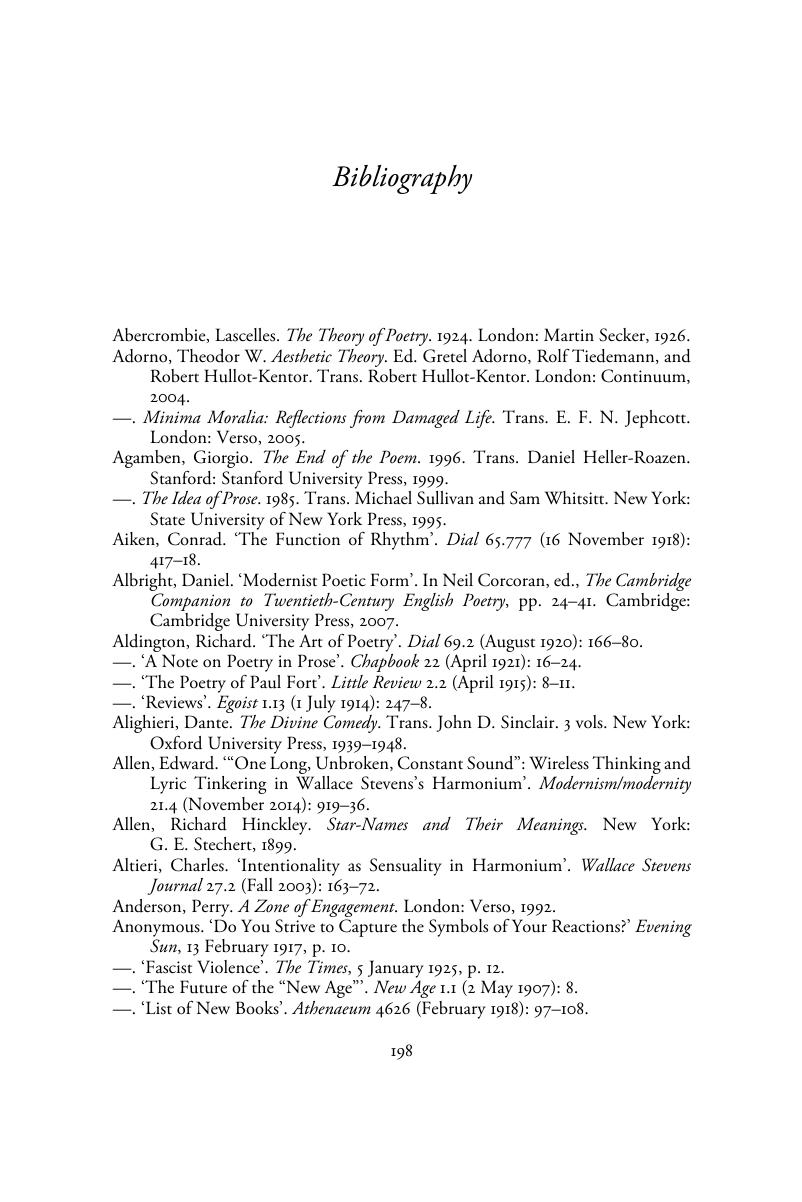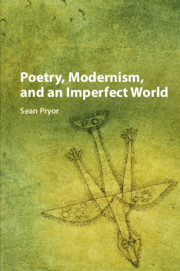Book contents
- Poetry, Modernism, and an Imperfect World
- Poetry, Modernism, and an Imperfect World
- Copyright page
- Contents
- Acknowledgements
- Chapter 1 Introduction
- Chapter 2 Ford’s Fall
- Chapter 3 Eliot’s Line
- Chapter 4 Loy’s Cries
- Chapter 5 Stevens’s Accidence
- Chapter 6 Macleod’s Signs
- Chapter 7 Conclusion
- Bibliography
- Index
- References
Bibliography
Published online by Cambridge University Press: 31 March 2017
- Poetry, Modernism, and an Imperfect World
- Poetry, Modernism, and an Imperfect World
- Copyright page
- Contents
- Acknowledgements
- Chapter 1 Introduction
- Chapter 2 Ford’s Fall
- Chapter 3 Eliot’s Line
- Chapter 4 Loy’s Cries
- Chapter 5 Stevens’s Accidence
- Chapter 6 Macleod’s Signs
- Chapter 7 Conclusion
- Bibliography
- Index
- References
Summary

- Type
- Chapter
- Information
- Poetry, Modernism, and an Imperfect World , pp. 198 - 218Publisher: Cambridge University PressPrint publication year: 2017



